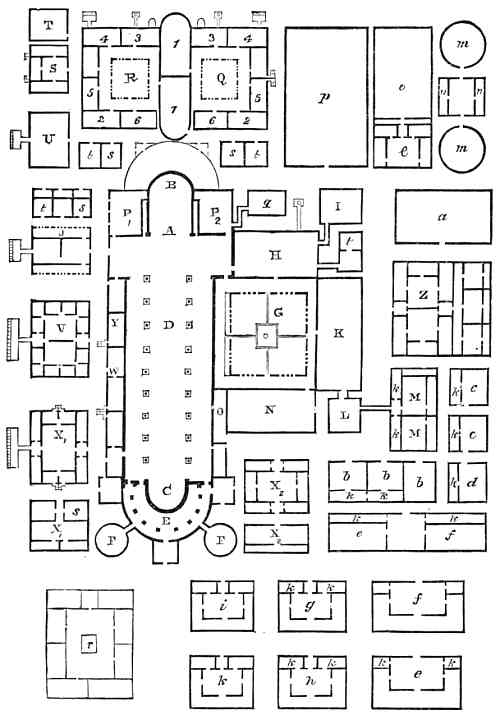The Wolo Story: the suicide of a young monk in the abbey of St. Gallen
Between pride and anxiety, the death of a noble monk, between sin and redemption

The map of how the Abbey of St. Gall looked in the 9th century - Wikimedia
Suicide is a sensitive and complex topic, which humanity has interpreted in various ways over the centuries, often marked by subtle philosophical or religious differences. Christian thought, in particular, strongly rejects suicide, though this did not prevent its occurrence—even within the walls of a monastery.
In 876, in the abbey of St. Gall in Switzerland, a young monk named Wolo was admitted. Known as “quite cultured,” Wolo was the son of a count, but he was also restless and unstable, with a proud disposition that made him resistant to monastic discipline, despite the severe corporal punishments administered there. This attitude was not uncommon; the monks of the abbey often came from high-ranking families, raised in privilege and freedom, accustomed to feuds and vengeance. Not even a visit from his parents could keep him in line for long; once they left, he returned to his old ways.
One night, the monk Notker recounted receiving a visitation from the devil, who whispered, “I am about to bring a wicked night to you and your brothers.” Notker warned his fellow monks the next morning, but Wolo mocked him, exclaiming, “Old men are always imagining foolish things!”
That very day, Wolo was supposed to remain in the scriptorium, without leaving the cloister as was his habit. However, after writing what would be his last words, Incipiebat enim mori (“he began to die”), he left his desk despite his brothers questioning his actions. He ascended the bell tower to look over the fields and mountains, attempting to calm his inner turmoil. As he climbed, “under the impulse of Satan, it is believed,” he fell from the tower, breaking his neck. Though he survived the fall, Wolo was acutely aware of his impending death. Between tears and groans, he confessed his sins, declaring that, despite many errors, he had (at least) never carnally united with a woman. He then implored Notker to pray for him.
The monk agreed, holding Wolo’s hand and praying with him until he took his last breath, his final moments marked by the prayers of his brothers.
Gian Carlo Alessio (edited by), Cronache di San Gallo, Turin, Einaudi, 2004, pp. 133-135.
2025-03-30
Salvatore Ciccarello
